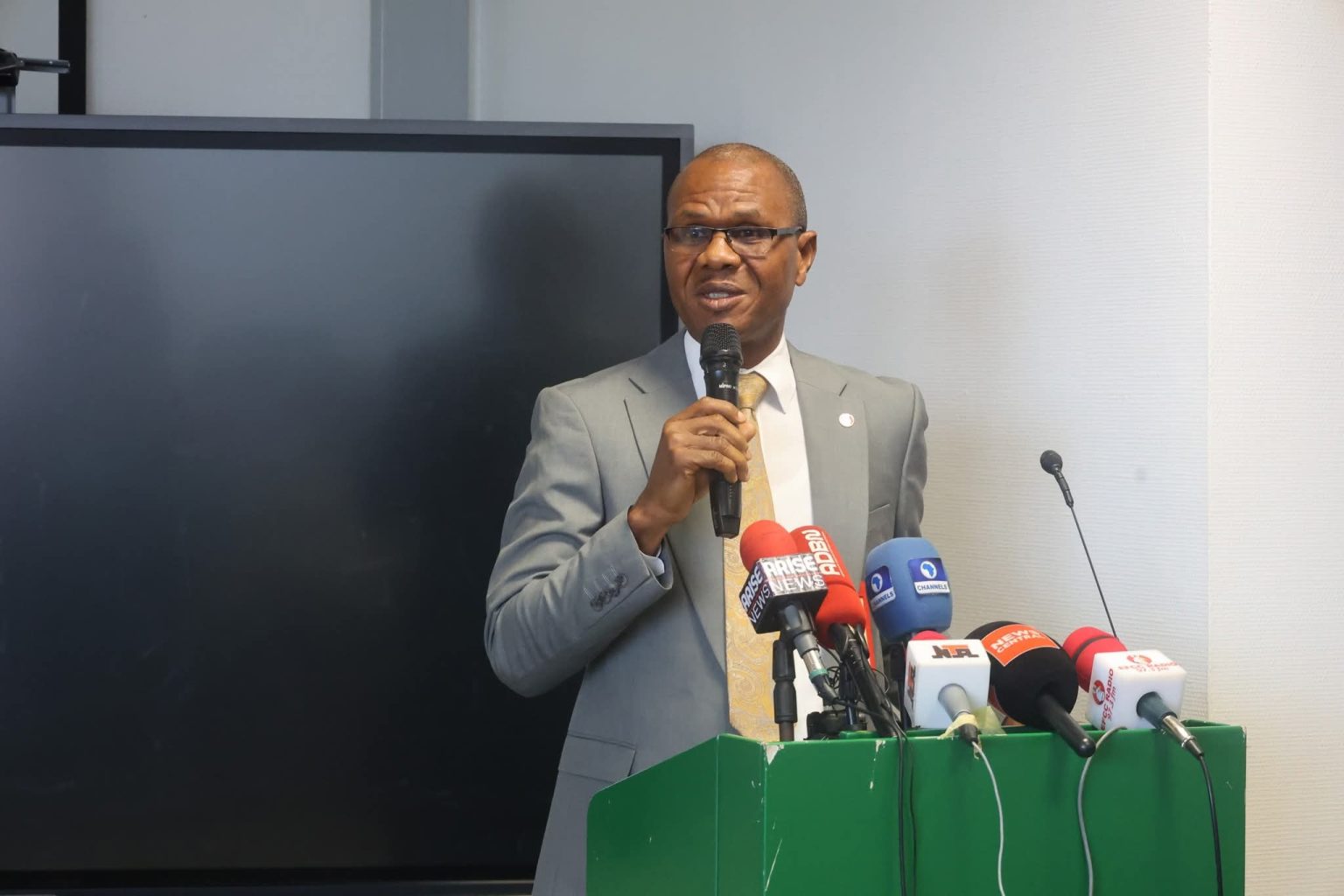The Economic and Financial Crimes Commission (EFCC) has reported a massive haul of over ₦566.3 billion and $411.5 million in cash, alongside 1,502 properties, during the two-year tenure of its chairman, Ola Olukoyede.
Olukoyede was appointed on October 18, 2023, and confirmed by the Senate the following day.
He disclosed the unprecedented progress and record-breaking achievements while addressing journalists in Abuja on Thursday to mark his second anniversary in office.
READ ALSO: Customs, EFCC, NFIU partner to tackle money laundering, terror financing
Olukoyede spoke through the Commission’s Director of Public Affairs, Commander of the EFCC (CE), Wilson Uwujaren.
Between October 2023 and September 2025, the EFCC recorded significant operational achievements.
During this period, he said the agency received over 19,000 petitions, conducted 29,240 investigations, filed 10,525 cases in court, and secured 7,503 convictions.
He added that the Commission also reported additional financial recoveries amounting to £71,000, and €182,800.
In addition to the cash, he said the EFCC recovered 1,502 non-monetary assets, including 402 properties in 2023, 975 in 2024, and 125 so far in 2025.
Olukoyede said the noteworthy recovered assets include the final forfeiture of 753 duplex units in Lokogoma, Abuja, and the forfeiture of Nok University, which has since been converted to the Federal University of Applied Sciences, Kachia, Kaduna State.
Olukoyede described the massive recoveries as a clear indication of the EFCC’s intensified effort to track down, seize, and return illicit assets to the Nigerian government and victims of fraud.
He confirmed the prosecution of several high-profile political figures, including former governors Willie Obiano, Abdulfatah Ahmed, Darius Ishaku, Theodore Orji, and Yahaya Bello, as well as former ministers and the former Central Bank Governor, Godwin Emefiele.
Olukoyede added that the Commission has also reactivated and pursued long-standing corruption cases involving individuals such as Fred Ajudua, Haliru Mohammed, Sambo Dasuki, and Ngozi Olojeme.
Addressing the issue of transnational crime, he revealed that the Commission arrested 792 suspects, including 192 foreigners, in Lagos in December 2024 for investment and cryptocurrency fraud.
He said the foreign suspects were prosecuted and deported, which the note sent a strong signal against using Nigeria as a haven for cybercriminals.
According to him, the recovered funds have been strategically deployed to national initiatives, including a total of ₦100 billion invested in the Students Loan Scheme and the Consumer Credit Scheme.
“Other government agencies like the NDDC, AMCON, FIRS, and NHIA have also been beneficiaries of the returned funds. Recovered properties have been allocated for use as government offices, in line with the policy of ensuring productive use of seized assets”, he said.
Olukoyede highlighted key institutional reforms, including the establishment of the Task Force on Naira Abuse and Dollarisation of the Economy, which has positively impacted currency stabilization.
He noted that the Commission also focused on cybercrime prevention through initiatives like the National Cybercrime Dialogue and the National Cybercrime Summit, where the Cybercrime Response Centre was launched by Nigeria’s First Lady, Oluremi Tinubu.
“Internal reforms included creating the Directorate of Fraud Risk Assessment and Control (FRAC) for corruption prevention, renaming the Department of Internal Affairs to the Department of Ethics and Integrity, and creating new Zonal Directorates in Ekiti, Anambra, and Katsina States, bringing the total to 17.
“The new EFCC Academy in Giri, featuring a Cybercrime Research Centre, is also under development. The EFCC has strengthened its collaboration with international law enforcement partners, including the FBI, the UK’s National Crime Agency (NCA), INTERPOL, and the Korean, Canadian, Spanish, and German Police.
“This cooperation has resulted in joint investigations and the repatriation of stolen assets to foreign victims. The Commission’s global standing was highlighted by the visits of the immediate past Director of the FBI, Christopher Wray, and the Director General of the NCA, Graeme Biggar”, Olukoyede added.
Olukoyede also secured a historic re-election as President of the Network of National Anti-Corruption Institutions in West Africa (NACIWA), leading to the establishment of the body’s permanent secretariat in Abuja.
Internally, he reaffirmed a zero-tolerance policy for corruption, stating, “You cannot fight corruption with corruption.”
He ordered all staff to declare their assets upon his assumption of office.
READ ALSO: Legal expert slams Rivers assembly’s ₦254bn probe, as Tinubu hosts Ibas, EFCC chairman
“Fifty-five officers have since been dismissed for misconduct, including one facing prosecution for exhibit tampering, while hardworking officers have been rewarded.
“The EFCC is also undergoing a rebranding process, with a new logo and slogan soon to be unveiled to reflect its renewed vision of integrity and professionalism.”



